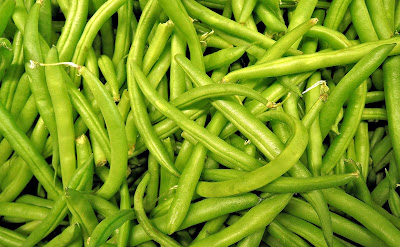Green beans, also known as string beans or snap beans, are a popular vegetable that is widely consumed around the world. These versatile legumes are a staple in many kitchens, and for good reason: they're nutritious, delicious, and easy to prepare. In this blog, we will explore the health benefits and potential side effects of green beans, as well as answer some frequently asked questions.
Health Benefits of Green Beans:
- High in Nutrients:
Green beans are an excellent source of vitamins and minerals, including vitamins A, C, K, and folate. They also contain iron, magnesium, and potassium, which are essential for maintaining healthy blood pressure and heart function.
- Rich in Antioxidants:
Green beans are rich in antioxidants such as carotenoids and flavonoids, which can help protect your cells from damage caused by free radicals. These compounds have also been linked to a reduced risk of chronic diseases, including cancer and heart disease.
- Support Digestive Health:
Green beans are a good source of fiber, which helps keep your digestive system running smoothly. Fiber also promotes feelings of fullness, which can aid in weight management.
- Boost Immune System:
Green beans contain vitamin C, which is essential for maintaining a healthy immune system. This vitamin helps your body produce white blood cells that can help fight off infections and disease.
- Promote Healthy Skin:
The high levels of vitamin C and antioxidants in green beans can also help promote healthy skin. These nutrients can help prevent damage from UV rays and promote collagen production, which can keep your skin looking youthful and healthy.
Side Effects of Green Beans:
- Flatulence:
Green beans contain oligosaccharides, a type of carbohydrate that can be difficult for some people to digest. This can lead to excess gas and bloating.
- Allergic Reactions:
Some people may experience allergic reactions to green beans, particularly if they are sensitive to other legumes such as peanuts or soybeans. Symptoms of an allergic reaction may include hives, itching, and difficulty breathing.
- Interference with Absorption of Nutrients:
Green beans contain phytic acid, a compound that can interfere with the absorption of certain nutrients such as calcium, iron, and zinc. However, soaking or sprouting the beans can help reduce the levels of phytic acid.
FAQs About Green Beans:
- Are green beans good for weight loss?
Yes, green beans are a good choice for those looking to lose weight. They are low in calories and high in fiber, which can help promote feelings of fullness and aid in weight management.
- Can green beans be eaten raw?
Yes, green beans can be eaten raw. However, they are more commonly cooked or steamed, as this can help improve their digestibility and reduce the risk of flatulence.
- Can green beans be frozen?
Yes, green beans can be frozen. To freeze them, blanch the beans in boiling water for 2-3 minutes, then transfer them to a bowl of ice water to cool. Once cooled, drain the beans and store them in a freezer-safe container.
- How long do green beans last?
Fresh green beans can last for up to a week in the refrigerator if stored properly. To maximize their shelf life, store them in a plastic bag with a damp paper towel to help maintain their moisture.
Conclusion:
Green beans are a nutritious and versatile vegetable that can provide a range of health benefits. They are high in vitamins and minerals, rich in antioxidants, and can help support digestive health, boost the immune system, and promote healthy skin. While they are generally safe to eat, some people may experience flatulence or allergic reactions.




No comments:
Post a Comment